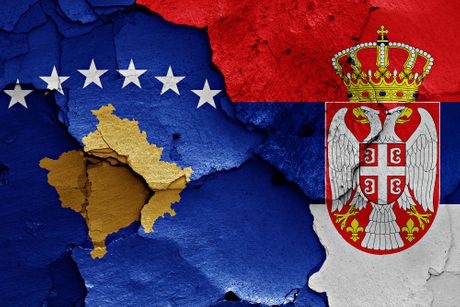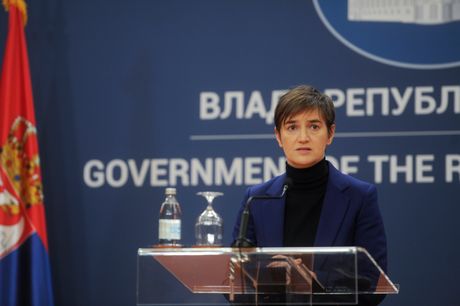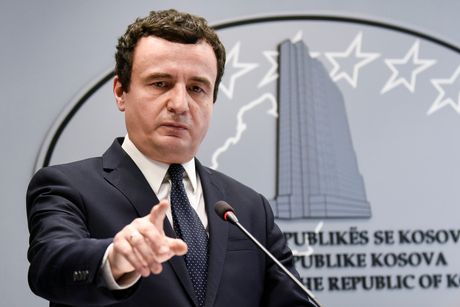Kurti wants different approach to dialogue: What's the future of Belgrade-Pristina negotiations

The dialogue between Belgrade and Pristina, judging by the statements of Self-Determination leader Albin Kurti, who is returning as the prime minister, will not be among the priorities. Although not the most important topic, soon after the results of the snap elections (held in Kosovo on Sunday) were announced, he spoke about precisely that issue.
That is why analysts in both Belgrade and Pristina believe that the course of the dialogue still depends a little more on international factors, RTS writes.
The euphoria in the streets in the sub zero weather was no surprise on Sunday, nor were Albin Kurti's remarks about the dialogue between Belgrade and Pristina just 48 hours after he won the election and confirmed his legitimacy among Albanian voters.
"In order to have a lasting dialogue and agreement, we must change the approach from what was typical for the previous US administration. The approach must be transformative, where not only interests and facts must be checked, but also values and principles. That can be a framework for European Union and Euro-Atlantic integration, as a goal for both countries," said Albin Kurti.
The fact that the dialogue with Belgrade will not be a priority for Albin Kurti does not surprise Prime Minister Brnabic.
"But it is regrettable and I think that it represents a lack of seriousness among political elites in Pristina once again, because I think the dialogue is the only way for us to reach an agreement on normalization, and that agreement will mean economic prosperity and progress, security and stability," Serbian PM Ana Brnabic stressed.

Ramush Tahiri, an analyst from Pristina, says that Kurti's position has always been that the approach to the dialogue should change.
"He is strong on that point and he gets votes on that, he says that he will talk to Serbia on an equal footing, he says that he will not give anything to Serbia in return for recognizing Kosovo, that Kosovo has already given a lot and that he will tak with Serbia about normalization of relations as two equal states, which includes mutual recognition and establishment of diplomatic relations. Whether that will work remains to be seen because Kosovo is a small country, a state and depends on the European community and the United States," Tahiri thinks.
How uncertain the course of the dialogue is, what will be its outcome - analysts in Belgrade don't expect answers to these questions from Pristina.
"That is a question for Pristina's western sponsors because Pristina is not the center of the state. Not only because we dispute the Kosovo secession, but also those who supported it act like that. If Washington and Brussels really wanted to tame the Albanians, they would do it overnight and whoever is in power in Pristina would be more than cooperative towards Belgrade," says analyst Dragoljub Andjelkovic.
It's good to recall that, as many have interpreted it, Kurti's previous government actually fell because of the dialogue with Belgrade. Apart from the fact that he refused to abolish the so-called reciprocity measure on Serbian goods, Kurti also decided not to support negotiations led by Richard Grenell on behalf of the former US president, which resulted in the Washington Agreement.

"It's characteristic that Kurti mentions the Euro-Atlantic approach and Euro-Atlantic values. I think that actually means a return to a solution that does not allow territory swaps or any redrawing of borders, that is, of what we see as the administrative line. I think that is the central message of such a thesis of Kurti's," notes Milan Krstic from the Faculty of Political Sciences.
And not only that. Krstic also interprets Kurti's message as a response to the changes in the White House. He says that Kurti's attempt to present himself as a more stable actor in negotiations than he was before he was replaced is as expected. Hence the increasingly frequent attempts of politicians from Pristina to put the agreement from Washington on the agenda.
"From the point of view of international law, the Washington Agreement, according to most experts, is not an international agreement, so its formal legal revision is not necessary, but it is certainly an important political document. Some political obligations arise from it. I think that it will not be formally revised and that some key political provisions from this agreement will remain in force, including mutual obligations of Belgrade and Pristina, but also the financial presence of the US in the region; however, some modifications are possible," Krstic added.
It is certain that those will not happen in the next two months. In that time, Albin Kurti should form a government in Pristina.
(Telegraf.rs)
Video: Titolo uoči SelectUSA Summit: "Čujem da je IT sektor najveći dragulj u kruni Srbije"
Telegraf.rs zadržava sva prava nad sadržajem. Za preuzimanje sadržaja pogledajte uputstva na stranici Uslovi korišćenja.

